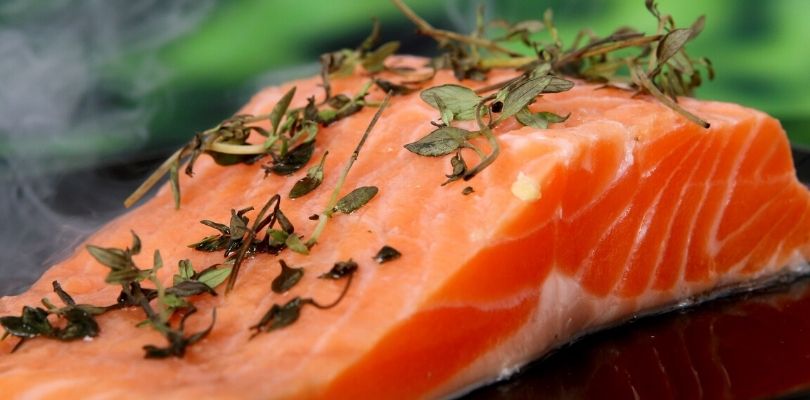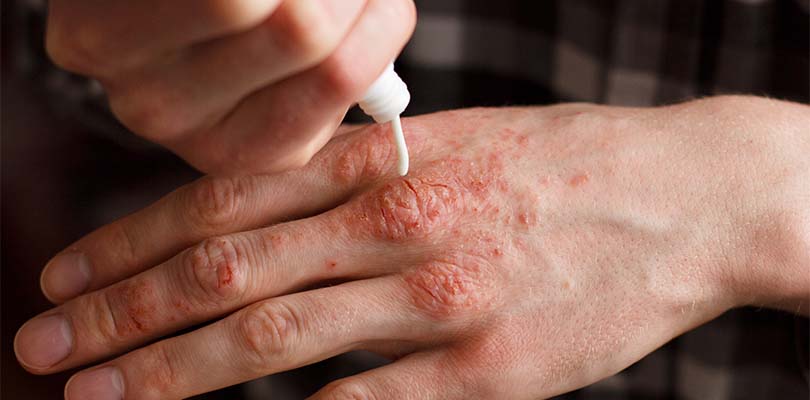Rheumatoid Arthritis Diet
Rheumatoid arthritis (RA) is a painful condition that occurs when the body’s natural defense system attacks the lining of the joints. It affects one out of every 100 Canadians and up to 1% of the total global population. It is believed that certain foods can help and trigger symptoms, so we will take a look at the perfect rheumatoid arthritis diet.
What Are the Symptoms of Rheumatoid Arthritis?
Symptoms of RA can include pain, stiffness in the joints and swelling. Many patients start off with pain in just a few joints, only to find their condition worsens over time. Unfortunately, there is no cure for RA, but the inflammation involved can be treated with the right medications and therapies.
What Causes Rheumatoid Arthritis?
Even though we know that RA is caused by a malfunction in the immune system that causes the body to attack its own joints, the exact cause of this malfunction is still unknown. However, there are some known risk factors for RA. These include:
- Genetics. You are more likely to get rheumatoid arthritis at some point in your life if you have a family history of it.
- Sex. Women tend to get rheumatoid arthritis more than men.
- Age. Rheumatoid arthritis occurs more often in people who are middle aged or older.
- Environmental factors. Some researchers theorize that certain exposures like asbestos or silica may trigger rheumatoid arthritis.
- Lifestyle. Smoking, obesity and poor diet may trigger or worsen rheumatoid arthritis.
How Does Diet Affect Rheumatoid Arthritis?
Though diet is not a huge direct trigger of RA compared to genetics, age and other lifestyle factors, diet can still play a role in the management of RA.
RA is an inflammatory condition. Inflammation is the process in which the body’s immune system flares up to fight an infection or something foreign in the body. This is why we get fevers when we are sick. Inflammation is typically a sign that the body is doing its job in keeping itself healthy. However, RA occurs when the immune system is fighting the body itself, not an infection.
Because inflammation is a process triggered by the body, foods can greatly impact it. Some foods are anti-inflammatory, suppressing the body’s inflammation process, and other foods are inflammatory, boosting this response. These foods will impact the health of a person with RA.
What Foods Are the Best for Rheumatoid Arthritis?
The best foods for a person with RA are anti-inflammatory foods. Here are what some of these foods include.
Fatty Fish
Fatty fish, like salmon or tuna, contains many omega 3 fatty acids. These are a good kind of fat that many western diets are low in. Your body needs a healthy balance of omega 3 and omega 6 fatty acids (which are found in red meats) in order to fight off inflammation.
Shoulder arthritis is usually the result of gradual wear and tear of the cartilage in the shoulder. Here's what else you need to know about it.
Fruits and Vegetables
Fruits and vegetables are a huge part of any healthy diet but are especially helpful for people with RA because they are packed with vitamins, minerals and antioxidants. It’s best to eat a wide variety of fruits and vegetables, and about seven to 10 servings per day.
Whole Grains
Whole grains help lower levels of C-reactive protein, which is a marker of inflammation. They also contain more nutrients and fiber than refined grains, which is good news whether you have RA or not.
Peas and Beans
These are a lean source of protein, which helps promote muscle growth. This is important because many people with RA lose muscle mass because of reduced movement, but other high protein foods like meat and dairy can be inflammatory.
Nuts
Nuts combine a lot of the benefits of other foods on this list. They have lots of omega 3 fatty acids (like fish), they have lots of fiber (like whole grains) and they have lots of protein (like peas and beans). They are the ultimate RA snack.
Foods to Avoided With Rheumatoid Arthritis
Here are some foods that need to be avoided with RA. These are all inflammatory foods.
Fatty and Oily Foods
Though some types of fat are good for RA, most fats are considered inflammatory, such as vegetable oils, fats in meat and dairy, and trans fat, found in processed foods. Vegetable oil in particular contains a lot of omega 6 fatty acids, which can ruin a healthy balance of omega 3 and omega 6 fatty acids and can worsen symptoms of inflammation.
Red and Processed Meats
These contain a lot of inflammatory fat and they also contain many unknown chemicals, which is a result of processing. Cured meats like salami and bacon are best to be avoided. Instead, opt for leaner white meats like chicken or turkey.
Sugar and Starch
Sugary foods (like sweets and desserts) and white starchy foods (like French fries and potato chips) can be highly inflammatory because of their high carbohydrate content.
Gluten
Many patients with RA experience a worsening of their inflammatory symptoms after the consumption of gluten, even if they do not have a specific gluten allergy or celiac disease.
Does Rheumatoid Arthritis Require a Special Diet?
Certainly not! While there may be some anti-inflammatory benefits to keto, Mediterranean, vegan, or gluten free diets, these certainly are not necessary to live a good life with RA. Many of the foods that are anti-inflammatory are healthy choices whether you have RA or not. Likewise, many inflammatory foods are already foods that should be consumed in moderation (if at all). So, in many ways, a good diet for RA is not much different from a healthy diet for any other person.
Some patients with RA can experience malnutrition because certain RA medications, like methotrexate, have been known to cause stomach ulcers, making it more difficult to eat. For this reason, vitamin supplements may be an additional element of RA treatment, but this should be discussed with your doctor.
Rheumatoid arthritis is a difficult disease to live with, but by following some of the advice in this article, you can do a small part to take control of your health and live life to the fullest.







